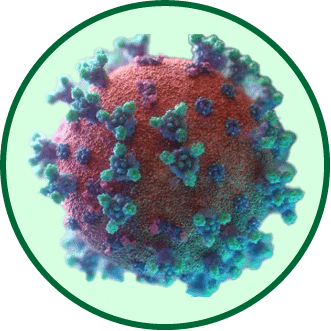Pathways to Wellness: Healing and Recovery from Respiratory Illnesses - What to Expect?
Introduction:
Embarking on the journey of healing and recovery from respiratory illnesses can often feel daunting. Whether you've battled the flu, bronchitis, or pneumonia, the path to regaining your health is marked by various stages and experiences. This guide delves into the recovery timeline, strategies to bolster healing, and measures to prevent future illnesses. With an emphasis on holistic well-being, we aim to provide a resource that not only educates but also empowers individuals to reclaim their health and vitality post-illness.
1. Understanding the Recovery Timeline: Patience is Key
- Initial Relief: The first few days after treatment begins can bring relief, but it's essential to continue prescribed regimens fully, even if you feel better.
- Gradual Improvement: Symptoms like coughing and fatigue might persist for weeks. Slow, steady improvement is a positive sign.
- Full Recovery: Depending on the illness's severity and your overall health, complete recovery can take anywhere from a few weeks to several months.
Keywords: recovery timeline, initial relief, gradual improvement, full recovery, prescribed regimens.
2. Nurturing Your Body: Nutrition and Hydration
- Healing Foods: Nutrient-dense foods aid the immune system. Focus on a colorful array of fruits and vegetables, lean proteins, and whole grains.
- Stay Hydrated: Water, broth, and herbal teas can help loosen mucus, keep you hydrated, and soothe your throat.
- Supplements: Vitamins C and D, zinc, and elderberry are popular supplements that may support recovery, but consult with a healthcare provider before starting any new supplement regimen.
Keywords: healing foods, stay hydrated, supplements, nutrient-dense, immune system.
3. Restorative Rest: Sleep Your Way to Health
- Quality Sleep: Prioritize 7-9 hours of sleep. Quality rest is crucial for healing, as the body repairs itself during sleep.
- Restful Environment: Ensure your bedroom is dark, quiet, and cool. Consider relaxation techniques like meditation or deep-breathing exercises before bed.
- Napping: Short naps can aid recovery, but avoid long or late-afternoon naps that can disrupt nighttime sleep.
Keywords: quality sleep, restful environment, napping, relaxation techniques, repairs itself.
4. Mindful Movement: Gentle Exercise and Recovery
- Start Slow: Once acute symptoms subside, reintroduce gentle movement like walking or yoga, but avoid overexertion.
- Listen to Your Body: Fatigue is common; respect your body's signals and rest as needed.
- Physical Therapy: In cases of prolonged recovery, consider consulting a physical therapist to regain strength and lung function.
Keywords: gentle exercise, start slow, listen to your body, fatigue, physical therapy.
5. Emotional Well-being: Mental Health Matters
- Stress Reduction: Chronic stress hinders healing. Explore stress-reduction methods such as meditation, journaling, or professional counseling.
- Support Systems: Lean on friends, family, or support groups. Emotional support is crucial for holistic recovery.
- Mindfulness: Practices like mindfulness meditation can reduce anxiety and improve mood, facilitating a more focused recovery process.
Keywords: emotional well-being, stress reduction, support systems, mindfulness, holistic recovery.
6. Preventing Recurrence: Future-Proofing Your Health
- Follow-up Appointments: Keep all follow-up appointments to monitor recovery progress and address any lingering issues.
- Vaccinations: Stay up-to-date with all recommended vaccinations.
- Lifestyle Adjustments: Permanent changes such as quitting smoking, incorporating regular exercise, and maintaining a balanced diet can prevent future illnesses.
Keywords: preventing recurrence, follow-up appointments, vaccinations, lifestyle adjustments, quitting smoking.
Conclusion: Healing and recovery from respiratory illnesses are as much about nurturing the mind and spirit as they are about treating the body. Understanding what to expect during recovery can equip you with the tools necessary to navigate this journey with confidence and patience. Remember, each individual's path to health is unique—so while this guide serves as a comprehensive resource, it's essential to stay in tune with your body and maintain open communication with your healthcare provider.
(Note: This article is intended for educational purposes and should not be used as a substitute for professional medical advice.)
Keywords: healing and recovery, treating the body, journey with confidence, unique path, professional medical advice.
